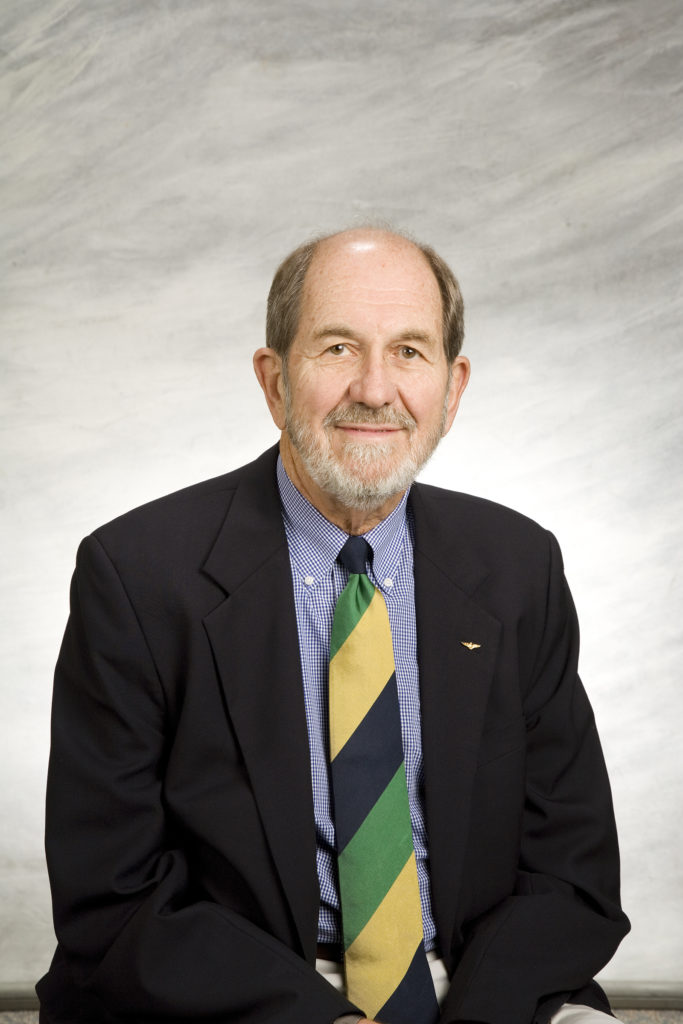My time at Notre Dame
Author: Lee A. Tavis (BS Commerce '53, C. R. Smith Emeritus Professor of Finance)
Father Hesburgh called me into his office in 1976, shortly after I arrived at the College of Business. He was aware that I had been involved for years with multinational corporations in the developing world, and he wanted to incorporate those relationships into Notre Dame’s social justice work.
 With his encouragement and support, I invited a very diverse group to come to Notre Dame for a two-day seminar. Participants included high-level multinational corporate executives, faculty from the Business School and other departments across the University, missionaries, and activists who openly opposed the actions of the multinationals, as well as political figures from the developing countries.
With his encouragement and support, I invited a very diverse group to come to Notre Dame for a two-day seminar. Participants included high-level multinational corporate executives, faculty from the Business School and other departments across the University, missionaries, and activists who openly opposed the actions of the multinationals, as well as political figures from the developing countries.
Perhaps I should have anticipated the result. The group exploded with a good deal of shouting. At the end of the two days, the president of one of the large multinationals told Father Hesburgh that he would not subject his executives to that kind of treatment and threatened to pull his funding of other Notre Dame projects. Father Hesburgh didn’t flinch. In fact, over the many years that this group and its offspring continued to meet, he opened every session as he had the first, by reminding the participants that a university is a place to disagree without being disagreeable.
After two days, people started listening to each other. On the last day, one of the executives who was very conservative in his beliefs got me in a corner and said, “OK, Lee, tell me one more time what you’re trying to do here.” I knew then that I had him hooked. In spite of the shouting – or maybe a little bit because of it – people decided that there was some value in the ideas of their opponents and in the process itself. And new ideas and insights began to emerge.
The group decided that they needed to do some real-world research. They chose a pineapple plantation in the southern Philippines, where the missionary group active in the area had called on the government to throw out the multinational in charge of the plantation and the multinational’s CEO had responded by calling the missionaries “a bunch of communists.” It would be fair to say that tensions were high.
Over the next year, six of our group traveled to the southern Philippines and collected data, being very careful not to make any interpretations. At the end of the year, the group reconvened to evaluate the data from different perspectives. A model of collaboration among opposing parties had emerged.
This three-phase approach became the model for the Program on Multinational Managers and Developing Country Concerns, under the auspices of the Mendoza College of Business. Eight groups over fifteen years conducted research at sites in China, Belize, Honduras, Kenya, Korea, Mexico, Panama, and the Philippines. We held meetings once or twice a year to plan and interpret the research. A series of five books, titled Multinational Managers and Developing Country Concerns, shared our findings with the larger world and offered our process as a model for bringing together diverse groups – even opponents – and helping them work together for the common good.
Our groups had some pretty unusual experiences together. One year, Archbishop McGrath of Panama offered to host our meeting. Johnson & Johnson provided a plane to fly the group down from Notre Dame, an indication of their commitment to our work. And top executives from major multinationals had the pleasure of sleeping in a seminary with no hot water but plenty of roosters crowing at sunrise. On another occasion, also in Central America, a small group of us were delayed returning from a day trip to a neighboring country. We got a first-hand lesson in the nocturnal dangers at the border and the value of bribery as a survival tactic.
So that initial suggestion from Father Hesburgh forty-five years ago has borne considerable fruit. There was an understanding at Notre Dame that a suggestion from Father Hesburgh carried more weight than the average suggestion, and in this case, I can’t help feeling that he was guided by a remarkable insight. I remain convinced that positive change is much more likely to result from dialog and collaboration than from mutual accusations and conflict, and that multinational corporations and their managers bring unique resources to the work of social justice and compassionate development. I tried to articulate this belief in a practical way in my final book, “Values-Based Multinational Management.”
I remain deeply grateful to Father Hesburgh. He became president of Notre Dame during my time here as a student, and he was the person who authorized my recruitment to the Mendoza College. He guided and supported my work for many years and was a treasured friend and mentor. We shared a love of flying, and I remember visiting him in his office in his final years, smoking cigars and swapping stories about planes.
Of course, I was not alone during my years at Notre Dame. My beloved wife Sparky was deeply involved in our work, and some of the most memorable discussions occurred in our living room after she hosted dinner for participants. Getting people into a comfortable home setting did wonders for loosening them up! In addition to her work with me, Sparky was a key figure in Retreats International and was the first head of lay student formation for the Master of Divinity program at Notre Dame. She has always been a force to be reckoned with – a force for good.
